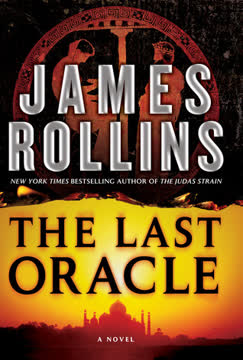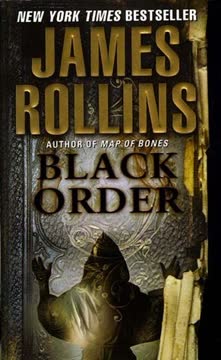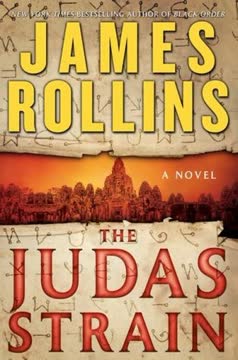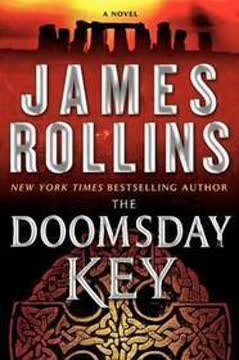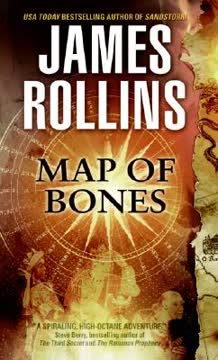Plot Summary
Chains in the Mountain
Deep in Bulgaria's Rila mountains, Cassiopeia Vitt finds herself chained and isolated, her fate uncertain. The cold stone and suffocating darkness press in as she assesses her dire situation. Her captors, unknown and menacing, have left her with little hope of rescue. Yet, Cassiopeia's mind races, searching for any possible means of escape. The remoteness of her prison, surrounded by glacial peaks and ancient forests, amplifies her vulnerability. Despite the fear, she clings to her resourcefulness, determined not to surrender to despair. The silence is broken only by distant sounds from the camp above, reminding her that danger is ever-present. In this moment, Cassiopeia's resolve hardens—she will not be a passive victim, no matter how bleak her circumstances.
The Archaeologist's Trap
The day before her capture, Cassiopeia had arrived at a remote archaeological camp, drawn by rumors of a hidden Thracian tomb. She meets Petar Varga, a seemingly friendly worker, and Lev Sokolov, a reserved Russian geologist. The camp's pretense of academic research quickly unravels, revealing a tense undercurrent. Cassiopeia's questions about the dig and its sponsors are met with evasive answers, and her curiosity is met with suspicion. The site itself, a cave adorned with ancient frescoes, hints at secrets far more valuable than bones. Cassiopeia's instincts warn her that she has stumbled into something dangerous, but her fascination with history and her friend Thorvaldsen's request keep her probing deeper. Her presence, however, has not gone unnoticed, and the trap is set.
Secrets of the Tomb
Led into the mountain's depths, Cassiopeia is shown a rectangular chamber, its walls painted with scenes of ancient Thracian life. The frescoes, depicting gods and hunters, confirm the tomb's authenticity and historical significance. Yet, the chamber is eerily empty—no treasures, only the lingering aura of lost civilization. Cassiopeia's knowledge of Thracian culture allows her to see through the false narratives spun by her captors. She realizes that the tomb is not the true prize; something else has drawn these men here. The sense of history is palpable, but so is the threat. Cassiopeia's mind races to connect the dots, even as her captors press her for answers she cannot safely give.
Russian Shadows Emerge
The power dynamics shift as Lev Sokolov, under Russian orders, interrogates Cassiopeia. He is conflicted, his demeanor more humane than Varga's brutality. The Russians' control over the site becomes clear, and Cassiopeia's wealth and background make her a valuable pawn. Sokolov's questions are probing but lack malice, hinting at his own entrapment. Varga, on the other hand, is ruthless, using violence to assert dominance. The interplay between captor and captive is fraught with tension, as Cassiopeia tries to read Sokolov's true intentions. The mountain becomes a crucible, testing loyalties and revealing the shadows that linger behind every word and gesture.
The Uranium Revelation
Cassiopeia's sharp intuition leads her to the truth: the men are not after gold or relics, but uranium. The Rila mountains, rich in minerals, have attracted Soviet interest for their strategic value. Sokolov's reaction to her deduction confirms her suspicions. The archaeological dig is a cover for a far more dangerous operation. Cassiopeia's predicament deepens—she is now a liability, a witness to secrets that could have international repercussions. The stakes are no longer academic; her life hangs in the balance. The revelation transforms the tomb from a site of historical curiosity to a battleground for power and survival.
Sokolov's Dilemma
Sokolov is torn between duty and conscience. A scientist at heart, he despises the oppressive regime he serves. His interactions with Cassiopeia reveal a longing for freedom and a distaste for violence. He subtly aids her, loosening her bonds and offering cryptic advice. Sokolov's vulnerability is palpable—he is as much a prisoner as Cassiopeia, trapped by political forces beyond his control. His desire to escape, to reunite with his wife in China, becomes intertwined with Cassiopeia's own struggle. The two form a fragile alliance, bound by mutual distrust of Varga and the Russians. Sokolov's dilemma is a microcosm of the larger conflicts that haunt the mountain.
Varga's Ruthless Hand
Petar Varga's true nature emerges as he strikes Cassiopeia and brandishes his authority. His actions are calculated to instill fear and compliance. Varga is the enforcer, the embodiment of the regime's cruelty. He is unyielding, pragmatic, and devoid of empathy. Cassiopeia's defiance only fuels his aggression, but she refuses to be cowed. The power struggle between them escalates, with Varga using threats and force to maintain dominance. His willingness to kill, to destroy evidence, and to betray even his own men marks him as a formidable adversary. Varga's presence is a constant reminder of the peril Cassiopeia faces.
Escape in Darkness
In a moment of chaos, Cassiopeia hurls a rock at the lights, plunging the chamber into darkness. She uses the confusion to break free, sprinting into the unknown tunnels. Gunshots echo behind her as she navigates the labyrinthine passages, her senses heightened by adrenaline and fear. The mountain becomes a maze of shadows and echoes, each turn fraught with danger. Cassiopeia's resourcefulness and courage are tested to the limit as she evades her pursuers. The darkness is both ally and enemy, concealing her from harm but threatening to swallow her whole. Her escape is a testament to her indomitable will.
Bombs and Betrayal
Cassiopeia's flight is interrupted by the discovery of bombs—digital timers ticking down to destruction. Varga's ruthlessness is on full display, as he attempts to bury her alive. Sokolov's whispered advice to "go left" is both a lifeline and a gamble. The tunnels collapse in a cacophony of explosions, forcing Cassiopeia to make split-second decisions. The betrayal is complete; survival depends on instinct and luck. The mountain itself becomes a weapon, its ancient stones turned against her. Cassiopeia's escape is harrowing, each breath a victory against overwhelming odds.
The Maze Below
Trapped in a narrow, dust-choked chamber, Cassiopeia battles panic and exhaustion. She discovers a faint current of air and, with determination, forces her way through a crawlspace. The physical ordeal is grueling, but her mind remains sharp. She emerges into a larger tunnel, battered but alive. The ordeal strips away all pretense, leaving only raw survival. The mountain's ancient silence is broken only by her labored breathing and the distant echoes of pursuit. Cassiopeia's resilience is her greatest weapon, carrying her through the darkness toward an uncertain future.
Sokolov's True Intentions
Reunited in the tunnels, Sokolov hands Cassiopeia his gun, declaring himself an ally. His hatred for the Soviet regime and longing for freedom drive him to risk everything. Sokolov's vulnerability and sincerity break through Cassiopeia's defenses, forging a bond of necessity. He confides his desire to escape to China and be with his wife, revealing the personal stakes behind his actions. The alliance is uneasy but genuine, each recognizing the other's courage and desperation. Together, they seek a way out, navigating the treacherous maze with newfound trust.
The Hidden Sanctuary
Sokolov leads Cassiopeia to a concealed chamber—a true Thracian sanctuary untouched by looters. The space is awe-inspiring, its architecture and artifacts a testament to a lost civilization. Gold, silver, and ancient relics litter the floor, illuminated by the beam of Cassiopeia's flashlight. The discovery is bittersweet; the tomb's splendor is overshadowed by the danger that still lurks. Sokolov's expertise and Cassiopeia's passion for history converge in this moment of wonder. The sanctuary is both a refuge and a trap, its secrets waiting to be claimed or destroyed.
Treasures of the Thracians
The tomb's contents are breathtaking—ornate chariots, weapons, jewelry, and the remains of a Thracian leader. Cassiopeia's reverence for history is palpable as she catalogs the treasures, recognizing their cultural and scholarly value. The artifacts tell stories of power, artistry, and ritual, bridging the gap between past and present. Sokolov shares his own dreams and regrets, deepening the emotional resonance of the discovery. The tomb is a microcosm of human ambition and mortality, its riches a reminder of the impermanence of power. Cassiopeia's awe is tempered by the knowledge that danger is never far behind.
Varga's Final Pursuit
The sanctuary's peace is shattered by Varga's arrival, explosives in hand. His voice, cold and mocking, signals the final confrontation. Sokolov's loyalty is tested as he and Cassiopeia race against time to escape. The tomb becomes a battleground, its ancient stones threatened by modern violence. Varga's relentless pursuit forces Cassiopeia and Sokolov to rely on each other completely. The stakes are ultimate—freedom or death, preservation or destruction. The past and present collide in a desperate struggle for survival.
The Narrow Escape
With seconds to spare, Cassiopeia and Sokolov uncover a concealed passage, crawling through dust and debris as explosions rock the tomb. The escape is frantic, every movement a race against collapsing stone and suffocating darkness. Emerging into the open air, battered and breathless, they are finally free of the mountain's grip. The ordeal has forged an unbreakable bond between them, each owing their life to the other. The tomb, though damaged, endures—a silent witness to their courage and the violence of those who would exploit history for power.
Freedom and Farewell
Outside, in the rain-soaked wilderness, Cassiopeia and Sokolov share a moment of mutual respect and gratitude. Sokolov, now presumed dead by his pursuers, is free to seek his wife and a new life. Cassiopeia offers help, but Sokolov declines, content with the freedom they have won together. Their parting is bittersweet, marked by the knowledge that their paths may never cross again. Each carries the scars and lessons of their ordeal, changed by the crucible of the mountain. The past lingers, but the future beckons.
Echoes of the Past
As Cassiopeia makes her way back to civilization, she reflects on the tomb's significance and the resilience of those who seek truth amid danger. The Thracian sanctuary, battered but unbroken, stands as a testament to the enduring power of history. Cassiopeia's journey is far from over; the secrets of the past continue to shape her destiny. The mountain's echoes linger, a reminder that courage, loyalty, and the pursuit of knowledge are timeless virtues. The story closes with hope and anticipation for what lies ahead.
Characters
Cassiopeia Vitt
Cassiopeia Vitt is the protagonist, a wealthy and adventurous woman with a passion for history and a strong moral compass. Her background as the heir to a vast fortune and her expertise in archaeology make her both a target and a formidable opponent. Cassiopeia's psychological resilience is evident in her ability to remain calm under pressure, think strategically, and act decisively. Her relationships are marked by trust earned through action, not words—she is slow to rely on others but quick to recognize genuine allies. Throughout the ordeal, Cassiopeia's empathy and integrity shine, as she balances self-preservation with a deep respect for cultural heritage. Her development is defined by her willingness to risk everything for truth and justice, emerging stronger and more self-aware.
Lev Sokolov
Lev Sokolov is a Russian geologist caught between duty and conscience. His expertise in mineralogy makes him valuable to the Soviet operation, but his heart lies elsewhere. Sokolov's internal struggle is shaped by his hatred for the oppressive regime he serves and his longing to reunite with his wife in China. He is introspective, gentle, and principled, contrasting sharply with the brutality of his compatriots. Sokolov's alliance with Cassiopeia is born of necessity but deepens into mutual respect and trust. His actions are driven by a desire for redemption and autonomy, making him both a tragic and heroic figure. Sokolov's journey is one of self-liberation, as he risks everything to break free from the chains of his past.
Petar Varga
Petar Varga is the primary antagonist, a man whose loyalty to the Russian cause is matched only by his capacity for violence. He is pragmatic, cunning, and unflinchingly cruel, using intimidation and force to maintain control. Varga's psychological profile is marked by a lack of empathy and a willingness to sacrifice anyone for his own survival. He is a master of psychological warfare, exploiting fear and uncertainty to dominate his victims. Varga's relationship with Sokolov is one of surveillance and suspicion, while his interactions with Cassiopeia are defined by aggression and contempt. His ultimate downfall is his underestimation of his adversaries' resolve and ingenuity.
Henrik Thorvaldsen
Though physically absent, Henrik Thorvaldsen's influence permeates the narrative. As Cassiopeia's friend and benefactor, he is the catalyst for her journey to Bulgaria, driven by his fascination with lost civilizations. Thorvaldsen's wealth and connections provide the resources necessary for Cassiopeia's quest, while his intellectual curiosity inspires her pursuit of truth. Psychologically, he represents the ideal of using privilege for the greater good, valuing history and knowledge over material gain. His relationship with Cassiopeia is one of mutual respect and shared passion for discovery.
Russian Security Operatives
The unnamed Russian operatives serve as extensions of the regime's power, enforcing discipline and suppressing dissent. Their presence is a constant threat, embodying the impersonal machinery of state violence. Psychologically, they are defined by obedience and detachment, carrying out orders without question. Their interactions with Sokolov and Varga reveal the internal hierarchies and paranoia that characterize authoritarian systems. They are obstacles to freedom, representing the ever-present danger of surveillance and betrayal.
The Thracian King
The remains of the Thracian king, discovered in the hidden tomb, serve as a powerful symbol of the transience of power and the enduring legacy of culture. Though silent, the king's presence shapes the narrative, connecting past and present. The artifacts and frescoes that surround him tell stories of ambition, artistry, and mortality. Psychologically, the king represents the human desire for immortality and the inevitability of decay. His tomb is both a sanctuary and a warning, a reminder of the costs of hubris and the value of remembrance.
Cassiopeia's Inner Voice
Throughout the ordeal, Cassiopeia's internal dialogue guides her decisions, balancing fear with determination. Her inner voice is analytical, compassionate, and unyielding, reflecting her psychological complexity. It serves as both a source of strength and a sounding board for doubt, shaping her responses to danger and uncertainty. This internal character is essential to her survival, providing clarity and focus in moments of crisis.
Sokolov's Wife
Though never seen, Sokolov's wife in China is a powerful motivator for his actions. She represents the possibility of redemption and a life beyond oppression. Psychologically, she is the embodiment of love, hope, and the future Sokolov yearns for. Her presence in his thoughts drives him to risk everything for freedom, adding emotional depth to his character.
The Mountain
The Rila mountain itself functions as a character, shaping the narrative through its geography, history, and dangers. It is both sanctuary and prison, its ancient stones bearing witness to human ambition and folly. Psychologically, the mountain represents the indifferent forces of nature and time, challenging the characters to adapt and endure.
The Thracian Tomb
The tomb is more than a setting; it is a symbol of the unknown, the allure of discovery, and the fragility of history. Its secrets drive the plot, while its destruction and preservation mirror the characters' struggles. Psychologically, the tomb embodies the tension between past and present, memory and oblivion.
Plot Devices
Duality of Sanctuary and Prison
The narrative structure leverages the physical setting as a metaphor for the characters' psychological states. The mountain's tunnels and chambers are at once places of wonder and danger, mirroring the duality of hope and despair. This device heightens tension, as every sanctuary can become a prison, and every escape route a dead end. The interplay between confinement and freedom drives character development and plot progression.
Shifting Alliances and Betrayal
The story employs shifting alliances, with characters forced to navigate uncertain loyalties. Sokolov's ambiguous motives, Varga's duplicity, and Cassiopeia's guarded trust create a web of psychological intrigue. Foreshadowing is used effectively, with subtle hints of betrayal and redemption woven throughout. The uncertainty keeps readers engaged, as the true nature of each character is revealed through action rather than exposition.
Historical Mystery as Catalyst
The discovery of the Thracian tomb serves as the catalyst for the narrative, blending historical intrigue with contemporary stakes. The artifacts and frescoes are not mere background; they are integral to the plot, symbolizing the enduring relevance of the past. The use of real historical context grounds the story, while the fictional elements heighten suspense and emotional resonance.
Countdown and Ticking Clocks
The use of bombs with digital timers introduces a literal ticking clock, forcing characters to make rapid decisions under extreme stress. This device intensifies the narrative pace, creating moments of high tension and dramatic escape. The countdown motif echoes the broader theme of mortality and the race against oblivion.
Analysis
Steve Berry's "The Balkan Escape" is a taut, atmospheric thriller that explores the intersection of history, power, and personal agency. Through the lens of Cassiopeia Vitt's harrowing ordeal, the novella examines the ways in which the past shapes the present, and how individuals navigate systems of control and violence. The narrative's psychological depth is anchored in its characters' internal conflicts—Cassiopeia's resilience, Sokolov's longing for freedom, and Varga's ruthless pragmatism. The mountain and tomb serve as powerful metaphors for the duality of sanctuary and prison, reflecting the broader human struggle for meaning and autonomy. Berry's use of historical mystery as a catalyst for modern intrigue underscores the enduring relevance of cultural heritage, while the relentless pace and shifting alliances keep readers emotionally invested. Ultimately, the story is a meditation on courage, loyalty, and the transformative power of survival, reminding us that the pursuit of truth and freedom is both perilous and profoundly human.
Last updated:
Review Summary
The Emperor's Tomb receives mixed reviews, with praise for its historical research, Chinese setting, and action-packed plot. Critics appreciate Berry's blend of fact and fiction, though some find the narrative convoluted. Readers enjoy Cotton Malone's character development and his relationship with Cassiopeia Vitt. The novel's exploration of Chinese history, politics, and abiotic oil theory intrigues many. However, some reviewers struggle with the complex plot and numerous characters. Overall, fans of the series and historical thrillers find it an entertaining, if sometimes challenging, read.
Cotton Malone Series

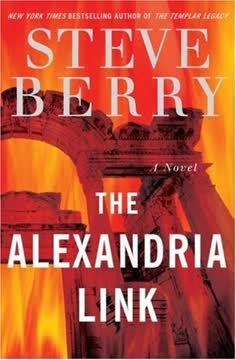
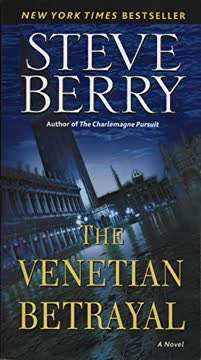


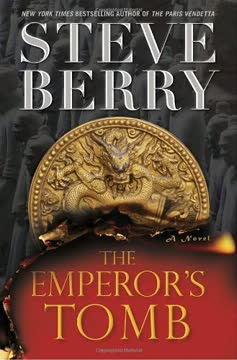


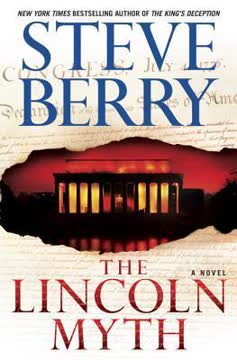




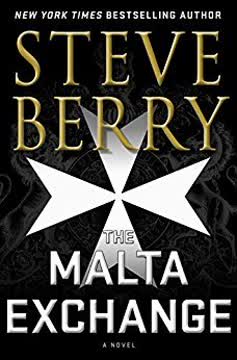
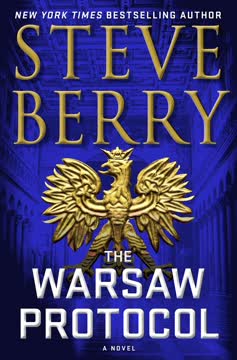


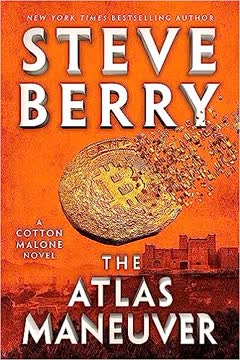

Similar Books
Download PDF
Download EPUB
.epub digital book format is ideal for reading ebooks on phones, tablets, and e-readers.

